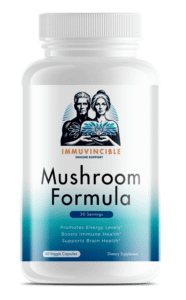Office workers face unique challenges when it comes to maintaining adequate levels of vitamin D. With long hours indoors,...

The Impact of Refined Sugar on the Immune System
Refined sugar, the sweet stuff hiding in everything from your morning cereal to that tempting afternoon soda, does more than add empty calories to your diet. Beyond its role in weight gain and messing with your metabolism, refined sugar can significantly impact your immune system. If you’re struggling to shake off a lingering cold or frequently battling minor infections, your sugar intake might be part of the problem. By understanding how sugar affects your body, you can make smarter dietary choices to keep your immune system strong and healthy. (And remember, sugar is pretty much everywhere, so it is very important to monitor your intake.)
Impaired White Blood Cell Function
Think of white blood cells as your body’s defense squad, constantly looking for invaders like bacteria and viruses. But that defense squad slows down when you indulge in sugary treats like a donut or sugary latte. Studies have shown that just one high-sugar meal can reduce the ability of your white blood cells to destroy bacteria for hours afterward. Picture this: you’ve just eaten a big slice of cake, and for the next several hours, your immune system is running low, unable to defend against germs that may come your way fully. This temporary impairment can be especially troubling if you’re exposed to a virus or infection during that time. So, while a sugary snack might seem harmless (I know, it is tempting!), it could leave your body more vulnerable to getting sick.
Inflammatory Response
Imagine your immune system as a firefighter, always ready to extinguish threats like infections and injuries. Now, picture sugar as gasoline, fueling a fire that doesn’t actually need to be fought. Consuming too much-refined sugar can trigger chronic inflammation in your body—a situation where the immune system is constantly on high alert, even when there’s no real danger. Over time, this unnecessary alarm can wear out your immune system, leaving you less equipped to deal with actual threats like viruses or bacteria. Chronic inflammation has also been linked to long-term conditions like heart disease, diabetes, and autoimmune disorders. So, while sugary foods might provide a temporary comfort, they may be stoking invisible fires in your body that could harm your health in the long run.
Gut Microbiome Disruption
Your gut isn’t just responsible for digesting food—it’s also home to trillions of bacteria that help regulate your immune system. Picture your gut as a bustling community where good and bad bacteria live side by side. Consuming too much refined sugar is like throwing a party for the harmful bacteria while ignoring the good ones. This leads to an imbalance known as dysbiosis, which weakens your gut lining and allows harmful substances to pass through into your bloodstream. This condition, often called “leaky gut,” can cause inflammation and immune dysfunction throughout your body. If you’re prone to frequent stomach problems, skin issues, or feeling run-down, a sugar-heavy diet might be wreaking havoc on your gut and immune health.
Oxidative Stress
You’ve probably heard about antioxidants—the good guys that help protect your cells from damage. But you might not realize that too much sugar can overwhelm your body’s antioxidant defenses, leading to what they call oxidative stress. Think of oxidative stress like rust forming on metal; it slowly degrades your cells, proteins, and even your DNA (yup!). When your body is under oxidative stress, your immune system becomes less effective at fighting off infections. So, the next time you’re reaching for that candy bar, remember: you’re not just satisfying a craving, you’re also exposing your cells to potential damage that could weaken your overall immunity.
Insulin Resistance and Diabetes
Regularly consuming high amounts of refined sugar can lead to insulin resistance—a condition where your cells start ignoring the signals from insulin, causing blood sugar levels to stay elevated. Imagine constantly knocking on a door that’s not being answered; that’s what happens when your cells don’t respond to insulin appropriately. Over time, this can lead to Type 2 Diabetes, which is known to impair immune function. When your blood sugar is high, your immune cells can’t work as efficiently, making it harder for your body to fight off infections. This is why people with diabetes often experience slower wound healing and are more susceptible to illnesses. Keeping your sugar intake in check isn’t just about avoiding diabetes; it’s about protecting your immune system from being compromised.
Nutrient Deficiencies
A diet loaded with refined sugar often crowds out the nutrient-dense foods your body truly needs to function at its best. Think of it this way: when you fill up on sugary snacks and sodas (please, find alternatives for sodas, these are the worst!), you’re leaving little room for foods that provide the essential vitamins and minerals your immune system relies on, such as vitamin C, zinc, and vitamin D. These nutrients are crucial for supporting immune health, helping your body produce the white blood cells that fight off infections. Additionally, sugar can interfere with absorbing these key nutrients, making it even harder for your body to get what it needs. So, while that sugary dessert might seem like a harmless indulgence, it could be quietly robbing your immune system of its ability to protect you. (Personally, I make sure I have days that I completely avoid all refined sugar and eat veggies all day.)
In Short
The bottom line is that refined sugar does far more than just satisfy your sweet tooth—it has a ripple effect on your entire body, including your immune system. By cutting back on sugar and prioritizing nutrient-rich foods, you can give your immune system the support it needs to keep you healthy and strong. So next time you’re tempted to reach for something sweet, think of it as a choice not just for your waistline, but for your overall well-being.
News
Related Posts
5 Powerful Reasons Kimchi Is a Superfood for Your Immune System
When it comes to boosting your immune system naturally, few foods pack as much power as kimchi. This traditional Korean dish,...
How Proper Sleep Boosts Your Immune System: Tips for Better Immunity
Getting a good night’s sleep isn’t just important for feeling refreshed—it’s also crucial for your immune system. Quality sleep...
Eat Smart, Stay Healthy: Immune-Boosting Nutrition Tips
Maintaining a strong and resilient immune system becomes increasingly important as we age. For adults over 30, it's not just...








